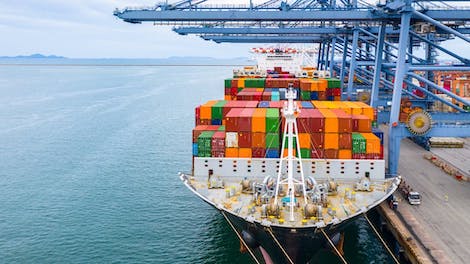Originally posted on Food Logistics.
Shippers and logistics companies can begin to build the agile and resilient procurement operations they need just by addressing the many challenges affecting the industry.
There is no shortage of issues that supply chain professionals are trying to tackle during this virtually unprecedented period of turmoil within the supply chain industry. From sourcing challenges to route analysis, each component of the supply chain today is under incredible stress. Freight procurement, in particular, is right in the thick of things.
Even in the best of times, getting freight procurement right is an imperative part of overall supply chain success. However, during periods of upheaval, it is even more important. With that, here are a few areas that shippers need to keep in mind in terms of procurement during this unparalleled period of disruption and how they can best manage them.
Coping with capacity congestion
Port capacity and operations have been right at the center of this evolving supply chain nightmare. And, while there are certainly challenges that exist in terms of the ocean supply chain, trucking capacity is certainly proving to be an equally formidable challenge.
Whether it is battling the lack of available truckers or trying to find an appropriate carrier, shippers simply can’t get the capacity they need. Moreover, with primary carrier rejection rates at an all-time high, shippers are having to rely on brokers more and more, which means their procurement costs are also skyrocketing. In fact, according to U.S. Bank, freight spending by shippers has jumped 32.6% in comparison to the same time last year and is up 5.6% since last quarter. This state of affairs simply isn’t sustainable — especially during a period of heightened stress due to the pandemic.
This means it is imperative for companies to gain the courage to move beyond their established procurement processes so that they can gain better visibility into the capacity market. Meaning, they need to empower themselves with the tools and processes they need so that they no longer need to rely on brokers and other partners that can slow down and complicate decision-making.
Market oversight challenges
Not only have capacity shortages been an issue, but unpredictability has also complicated matters for shippers, with pockets of open capacity cropping up at unexpected times. Simply put, many shippers today rely on outdated technology that does not allow them to adapt quickly enough to these sudden market changes. Under the current set of circumstances, this means they are completely missing out on low-cost procurement opportunities. So, what can be done?
Fortunately, there are tools that exist today — such as machine learning and artificial intelligence (AI) — that can help shippers become much more agile and responsive to on-the-ground market conditions. This allows them to better adapt their procurement strategies so that they can anticipate when capacity might be more readily available. Thus, they are able to optimize their expenditures, and perhaps more importantly, keep things moving by getting idle shipments out the door.
The Big Data problem
The logistics space is renowned for its deliberate and slow-moving nature when it comes to technology adoption. And, unfortunately, the current market has highlighted just how big the industry’s shortcomings in technology are. Too often today, shippers and logistics teams do not have the data infrastructure in place to effectively manage disruptions. Furthermore, any data they do have typically only paints a partial picture thanks to the fact that third-party procurement partners traditionally operate as a reporting “black box.” Moreover, this fragmented data view is exacerbated by shippers’ internal operations which still create unnecessary siloes and roadblocks that inhibit information sharing.
With this, shippers need to hit fast-forward on their long-overdue digital transformation efforts so that they can derive the data they need to enable real-time decision-making. Granted, shippers and logistics companies have a lot on their plates at the current moment. But, bolstering their data capabilities needs to be a foremost priority if they are going to navigate this crisis effectively.
The freight procurement industry is facing a set of complex problems that require shippers and logistics companies to have complex and holistic strategies. And, while this may seem like a heavy lift, by focusing on addressing these problem areas first, shippers and logistics companies can begin to build the agile and resilient procurement operations they need.

